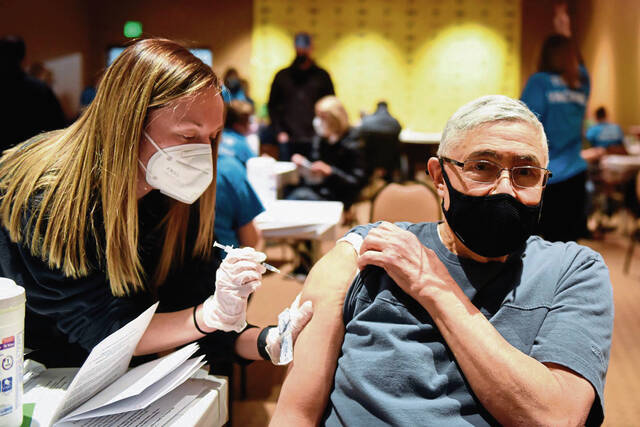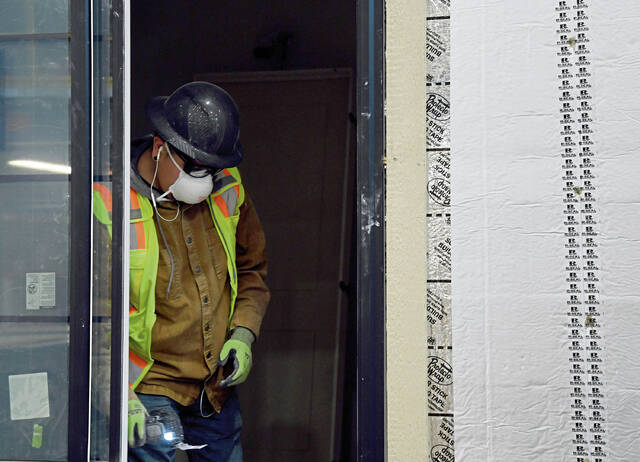Uncertainty, fear and anxiety gripped the nation in early 2020 as we began to deal with the covid-19 pandemic. This was especially true for health care workers who were tasked with treating a novel virus we knew very little about other than the lethal impact it had in other parts of the world.
University of Pennsylvania researchers found registered nurses experienced roughly two and a half days each week feeling anxious or withdrawn, or had difficulty sleeping during the height of the pandemic because of personal protective equipment needs and the possibility of catching and transmitting the virus to loved ones. This same survey found that this moral distress they experienced caused longer term mental health challenges for health care workers.
As a result, some health care workers are choosing to leave their professions altogether, exacerbating a critical nursing shortage which is expected to continue through 2030. The pandemic’s strain, coupled with the more than 500,000 registered nurses expected to retire by next year, has the U.S. Bureau of Labor Statistics anticipating a nursing shortage of 1.1 million also by 2022.
As reported by NurseJournal.org based on the most recent available data from the Bureau of Health Workforce, Pennsylvania has just 15.09 nurses per 1,000 people. This illustrates the true deficit the health care workforce is facing and calls for a “rapid response” from their employers and state and federal leadership to ease the burdens they continue to carry and better support their futures in the health care workforce. In situations when nurses require additional support as a patient’s condition quickly deteriorates, they activate a “rapid response” by which a specialized team of medical professionals steps in at a moment’s notice to provide much-needed support.
It’s time we resuscitate those on the front lines by reevaluating how hospitals deliver care, providing accessible mentorship and career advancement opportunities, and reworking how Pennsylvania rates, budgets and rewards hospitals. We must improve how we care for those who are dedicated to caring for us.
Open doors for career mobility
Affordable and accessible education opportunities help upskill and retain talent in all areas of health care, especially for those starting in positions such as medical assistant and licensed practical nurse. In addition, these entry-level medical professionals are equipped with skills to step in and support nurses and doctors. By creating more opportunities for other health care workers to support and grow in their careers, registered nurses, as well as doctors and other physicians, can emerge from the heavy weeds of patient care and tap into more skilled work.
Through these experiences, adult learners increase confidence and may feel more motivated toward advancing their career — for example, an LPN upskilling to an RN — through continued education and degree completion.
Invest in the next generation of nurses
Fatigue and shortages have also made it more challenging to identify qualified nurses to serve as preceptors, or nurses who support students and new staff members by providing useful feedback, achieving learning objectives, teaching hospital protocols and encouraging critical thinking. Similar to providing career mobility through more supported roles in health care and educational experiences fit for adult learners, preceptor relationships serve a crucial role in supporting the next generation of nurses. Because preceptors serve a critical role in training our future health care workforce, we must explore how we can equip nurses with the skills they need while avoiding further strain on current staff.
Examine how ratings and funding impact hospitals
Staffing shortages are only one obstacle hospitals are facing. Many health care facilities and hospitals are finding it difficult to compete for talent with higher wages while exceeding employee and patient experience expectations. This stems in part from tight budgets that largely rely on ratings and funding controlled by the government. It’s time for state and federal lawmakers to revisit how they rate, budget and reward hospital networks as a way to support a higher standard of care through a stronger workforce. Maintaining and growing our health care work force is fundamental to providing quality care to patients in Pennsylvania.
Our health care workforce provides an essential lifeline to our communities, but their condition is in dire need of a rapid response. Similarly to how specialized teams are equipped with tools to support an ailing patient, career mobility, mentorship and proper funding must be accessible so that we can ease the burden on health care professionals now and in the future.
Alison Bell is regional vice president for Western Governors University.








